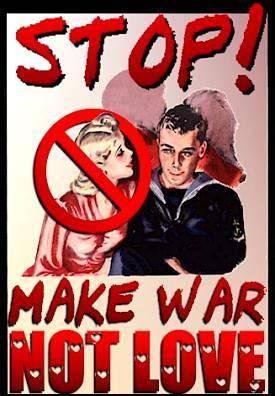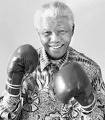The Popularity of War
Since the dawn of time, Man has been responsible for creating his own entertainment. The ingenuity of the human mind has given us cock fighting, badger baiting, pogroms and, most consistently popular, WAR.
Rarely has there been a time when man has not taken pleasure from smiting other men with the jaw-bone of an ass, or amused his friends by firing Phosphorus missiles into crowded population centres. But not all wars are the same, so just which wars did we enjoy the most?
Dispute among Historians
Over the centuries Historians have struggled to find consensus on just how to measure the popularity of wars and this dispute itself led to the so called “Wussy War” of 1952 when Professor AJP Taylor triumphed over the forces of Noam Chomsky.
- Surely a good war is worth persevering with and English and French historians point to the Hundred Years War as the standard by which all other wars must be measured. Jewish historians, however, point out that war has been enduringly popular in Israel over thousands of years but that some Israeli wars have lasted less than a week despite being held in high regard in Tel Aviv. Why, they ask, should the lack of popularity of war with their Arab neighbours count against them?
- A somewhat more sophisticated approach is to measure popularity by participation. This can be tricky since numbers of combatants are notoriously difficult to calculate and accurate population figures are equally difficult to come by. Many historians have adopted the Mengele Model :
Popularity = Participating countries – Spineless countries that have since disappeared due to conquest and/or genocide.
However, the Great War (1914-1918) saw extensive popular involvement and yet only a handful of participating countries were fully independent. Is the Mengele Model really a reliable measure of popularity? - It may seem incredible, but not everyone enjoys war! Over the centuries thousands of people have chosen to avoid participation in war by bringing a note from their mother excusing them due to flat-feet, or so-called conscience.
In 1944, Joseph Stalin boasted of the esteem in which war was held within the USSR, pointing to the high number of Russians who had enjoyed the experience so much that they were prepared to die for it. However, under this measure, the 1970s Cod Wars between Britain and Iceland would fare poorly since there were no casualties, yet it remains a conflict fondly remembered, especially by fish.
Holistic approach
In an effort to solve this ever-vexed question, Nelson Mandela called warring historians to a landmark reconciliation conference in Durban, 2009. After six days of negotiation it was agreed that each of the measures had some value and the following simple formula was adopted:
- Where
- Popularity (of war)
- Nations (still extant and active)
- time (in years)
- Total number of (human) casualties / 100,000
So, armed with this Internationally accepted standard, just which wars did we enjoy most?
Results
If Hollywood is any guide then the best wars occurred in Vietnam in the 1960s and 70s, and all over the place in the 1940s. But which of these wars was most fun?
The Vietnam War versus the Second World War
The Vietnam War (or sequence of wars) began in 1960 and continued in some form until 1975, giving a satisfying 15 years of mayhem. These days the Second World War is usually considered to have begun with the Sino-Japanese War in 1937 and ended with a bang in 1945, a mere 8 years later. Are we to believe that WWII was only 53% as pleasurable as the Vietnam War? Duration, of course, is not the only factor in the Mandela Equation. Let us look more deeply at the level of popular participation.
A total of twenty two nations could see what a good thing WWII was compared to a mere sixteen who expressed an interest in Vietnam. More tellingly, a whole 55 million people enjoyed WWII enough to lay down their lives for it, whereas a mere 3.5 million people summoned the enthusiasm to die in Vietnam.
So what does this mean in real terms?
Popularity of WWII = 22 + 8 + 550 = 580
Popularity of Vietnam War = 16 + 15 + 35 = 66
So that's a hands down victory for the perennial favourite, with WWII emerging almost nine times as popular as Vietnam. Hardly a surprise, one feels - wars don't become World Wars without good reason.
Yom Kippur or the Six Day War?
Neither of these two exciting little spats score highly on a world basis with only five nations opting in to the Six Day War and a meagre four when it came to Yom Kippur.
But with so little external interest how did these regional tiffs fare on the other measures?
Lasting a paltry six and twenty one days respectively, both wars seem to have suffered from a lack of enthusiasm on behalf of the Arab participants. And few people seem to have enjoyed themselves enough to end their lives on the field of conflict, with a rather sad 13,000 really putting their all into it during Yom Kippur, and only 20,000 giving it up in the course of the Six Day War.
How does this translate on the Mandela Scale?
Six Day War = 4 + 0.016 + 0.2 = 4.216
Yom Kippur = 5 + 0.057 + 0.13 = 5.187
Clearly neither of these wars can hold a menorah to WWII but with such a deep-seated cultural regard for violence surely Israel can generate a truly popular war if it just casts its net just a little wider in the future.
Is Size Everything?
There may have been only 81 years of conflict during the 116 years that England and France enjoyed the humorously-named Hundred Years War, but is there really too much of a good thing? Perhaps Prussia and Austria enjoyed their seven year squabble so much that they chose to end it quickly, rather than to allow the magic to slowly fade. There's only one way to be sure:
Hundred Years War = 2 + 81 + 60 = 143
Thirty Years War = 10 + 30 + 115 = 155
Seven Years War = 8 + 7 + 15 = 30
So, no surprise that the Seven Years War couldn't compete for the public's attention with the Thirty Years War, but that old chestnut the Hundred Years War let down by its failure to attract the interest of more than two nations. A case perhaps of never mind the length, feel the girth. Perhaps more importantly, a whole 11.5 million people enjoyed the Thirty Years War terminally, whereas, despite eighty one years of trying, only 6 million souls really put their all into The Hundred Years War - possibly distracted by their enjoyment of the Black Death which monopolised public interest for much of the fourteenth century.
Civil Wars

Can a war be truly popular if only one country joins in? That's a questions that has been argued over in the world of entertainment for generations, but now for the first time we have the means to truly assess just how much we enjoy slaughtering our own countrymen. We'll be looking at the bloody but brief, Twentieth Century Spanish Civil War, the Nineteenth century's stand-out blood-fest in America, and the Succession of Wars that are classed as the English Civil War.
Interestingly, the English may have thought they were fighting a Civil War but, since the emergence of the Republic of Ireland, it's now a civil war with more than one active participant. Will that make all the difference? Let's see.
Spanish Civil War = 1 + 3 + 4.65 = 8.65
American Civil War = 1 + 4 + 6.2 = 11.2
English Civil Wars = 2 + 7 + 8.7 = 17.7
Confirming all our prejudices, Spanish lethargy lets them down with only three years of fun and a mere 465,000 committed players. Meanwhile, the Americans clearly talk a good game but failed to sustain interest after the first four years and couldn't find more than 620,000 aficionados. It's a clear win for Merrie Olde Englande - one of the World's finest practitioners of the ancient art of maiming and killing, with a whole seven years of senseless self-slaughter enjoyed to the max by 870,000 happy participants.
Findings of the survey

What has this fascinating investigation onto the popularity of Man's favourite past-time really taught us? It has shown us that size is important and that really good war should run and run. International appeal is almost equally important too - no great war ever involved two drunks fighting over a beer. But clearly it's the wholehearted commitment of the canon-fodder that really counts.
The overall winner, WWII may have had only a limited run but scored well for participation and really brought home the bacon in the casualty stakes. So it's hats off Hitler and Hooray for Hirohito.
Goodnight.











